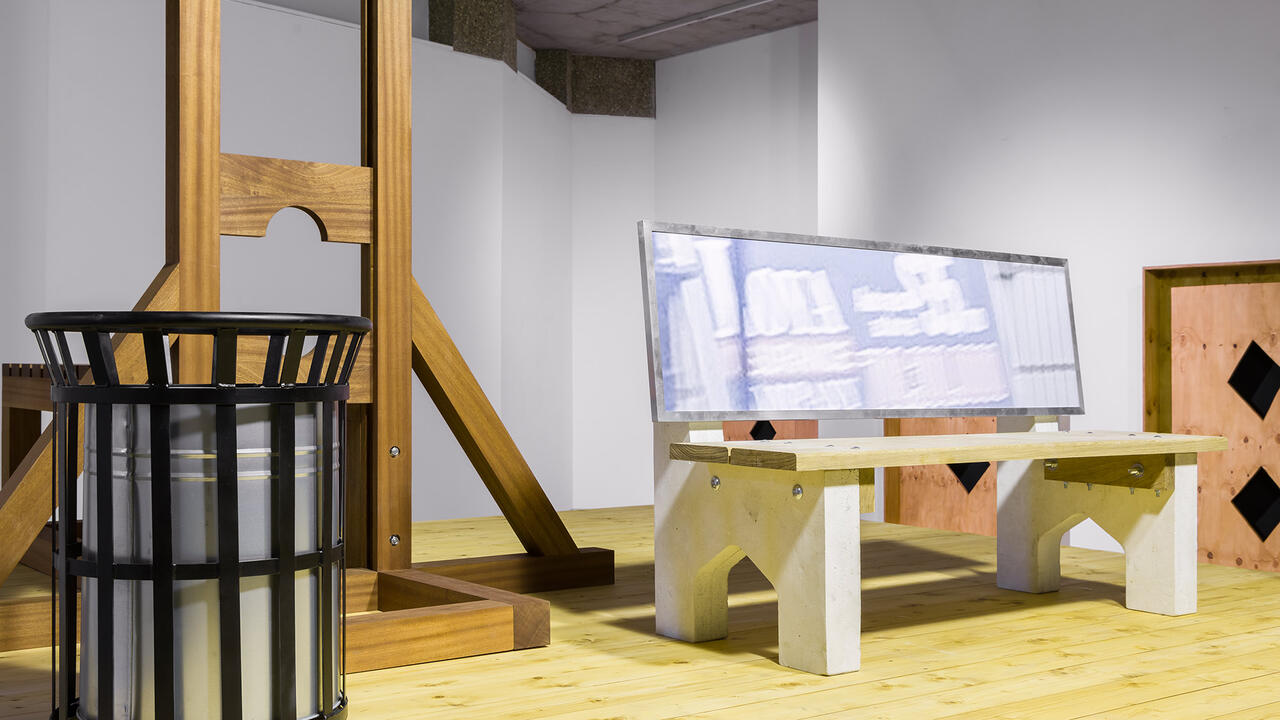Food for Thought
This week’s Culture Digest focuses on performative meals. First: the Climavore dinners series from Cooking Sections
This week’s Culture Digest focuses on performative meals. First: the Climavore dinners series from Cooking Sections

Maybe I’ve taken the brief for Culture Digest too literally, but three of the most thought provoking non-exhibition based cultural events I have attended recently have unfolded as, or around, meals. In each case, food has been the means rather than end to facilitate discussion, create an atmosphere or give tangible form to abstract political and social issues.

The London-based artist duo Cooking Sections (Daniel Fernández Pascual and Alon Schwabe) opened The Empire Remains Shop in August as the culmination of a three-year research project into the legacy of imperial trade routes on contemporary geopolitics and patterns of consumption. Housed in a temporary first-floor commercial space on Baker Street, the shop, which closed at the beginning of November, was a forum for lectures, discussions and performances with and about food and drink, by Cooking Sections and an extensive group of collaborators.
The duo’s Climavore dinners (an ongoing series, which began in 2015 at Q21, Vienna) are served on suspended plywood tables, hand carved to map the thousands of sinkholes that have been appearing with increasing frequency on the shoreline of the Dead Sea since the early 2000s. These sinkholes are a result of the damming of the Jordan River and its use for water-intensive date cultivation – largely by settler communities in the West Bank – as well as the extensive evaporation ponds on the southern part of the Sea by Israel’s Dead Sea Works and Jordan’s Arab Potash Company. Both companies have been operating since the time of the British Mandate of Palestine and extract the water’s naturally abundant mineral salts for use as fertilizer across the world.

The Climavore menu addresses the fact that hyperfertility, fuelled by potash extraction such as that occurring on the Dead Sea, means that crops can now be grown in places and seasons where they would not naturally occur, effectively suspending seasonal cycles. In place of spring, summer, autumn and winter, Climavore dinner courses respond to changing climatic conditions. As part of the meal I attended earlier this month, for example, I ate soup made from sea kale, elderberry and sea asparagus, grown to make use of saline coastal flatlands (‘Flash Flood Season’); water-efficient lentils and barley dotted with pomegranate seeds, which consume little water in dry periods (‘Drought Season’); and cake made from the drought-resistant moringa tree, which is being planted across Africa as part of the Great Green Wall – a transnational initiative to slow the advance of the Sahara desert (‘Desertification Season’). Part provocation and part practical proposition, the Climavore diet invites us to critically examine our consumption habits and consider ways in which food production could restore rather than ravage the natural environment. Cautiously optimistic, it suggests that coming environmental crises need not spell the end of eating well.























